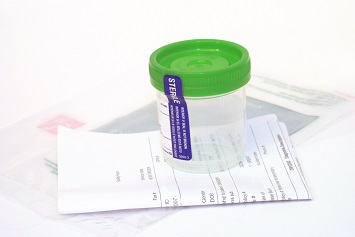In a memo issued October 11, 2018, OSHA’s acting director of Enforcement Programs has provided a regulatory clarification that appears to ensure employers that they have flexibility to test employees for drugs following reporting by the employees of a workplace injury or incident, as long as it contributes to root cause analysis. Drug testing under these circumstances, as well as withholding a reward for an employee who reports that he or she was injured, would be legitimate provided the employer is conducting the test and withholding the reward in the context of creating a “culture of safety” and not to retaliate against the employee for reporting.
The memo apparently responds to confusion about the implications of OSHA’s May 12, 2016, final rule, amending 29 Code of Federal Regulations (CFR) 1904.35, which, at 1904.35(b)(1)(iv), prohibits employers from retaliating against employees for reporting work-related injuries or illnesses. In the preamble to the final rule, OSHA discussed how the amendment could apply to actions taken under workplace safety incentive programs and post-incident drug testing policies.
Drug Testing
The memo reiterates that the antiretaliation provisions under 29 CFR 1904.35 do not prohibit drug testing. Specifically, OSHA says the following types of drug testing are permissible:
- Random drug testing
- Drug testing unrelated to the reporting of a work-related injury or illness
- Drug testing under a state workers’ compensation law
- Drug testing under another federal law, such as a Department of Transportation (DOT) rule
- Drug testing to evaluate the root cause of a workplace incident that harmed or could have harmed employees
The last bullet point is particularly significant, as it provides clarity regarding the circumstances under which OSHA would consider a post-accident drug test to be justified. The phrase “to evaluate the root cause of a workplace incident” is key to making this determination, and employers must carefully consider whether there is a potential causal link between drug use and the incident in question.
For example, an incident in which an employee struck a pedestrian with a forklift would likely be a permissible situation for drug testing, since drug use can effect motor skills, reaction time, and other factors that could have been relevant to a forklift incident. However, requiring an employee to take a drug test in response to a report of work-related carpal tunnel syndrome would likely not permissible unless carried out under the authority of a state workers’ compensation law, as there is no causal link between drug use and the development of carpal tunnel syndrome. In this second scenario, a drug test has no ability to aid in root cause analysis.
OSHA further elaborates in the memo, “If the employer chooses to use drug testing to investigate the incident, the employer should test all employees whose conduct could have contributed to the incident, not just employees who reported injuries.” Applying this logic to the forklift scenario above, if the pedestrian was injured but the forklift driver was not, drug testing only the pedestrian could be considered retaliatory, since the forklift driver’s conduct was the most likely cause of the incident.
Incentive Programs
Safety incentive programs can take several forms. One type rewards workers for reporting near misses or hazards and encourages involvement in a safety and health management system. Positive action taken under this type of program is always permissible under 1904.35(b)(1)(iv).
A somewhat grayer area is occupied by rate-based incentive programs. These are focused on reducing the number of reported injuries and illnesses. This type of program typically rewards employees with a prize or bonus at the end of an injury-free month or evaluates managers based on their work unit’s lack of injuries. Rate-based incentive programs are also permissible under 1904.35(b)(1)(iv) as long as they are not implemented in a manner that discourages reporting.
“Thus, if an employer takes a negative action against an employee under a rate-based incentive program, such as withholding a prize or bonus because of a reported injury, OSHA would not cite the employer under section 1904.35(b)(1)(iv) as long as the employer has implemented adequate precautions to ensure that employees feel free to report an injury or illness,” the memo states.
Adequate Precautions
According to OSHA, “adequate precautions” will “counterbalance” an employer’s decision to conduct drug testing or withhold a reward. The memo notes that such precautions may include:
- An incentive program that rewards employees for identifying unsafe conditions in the workplace;
- A training program for all employees to reinforce reporting rights and responsibilities and to emphasize the employer’s nonretaliation policy; and
- A mechanism for accurately evaluating employees’ willingness to report injuries and illnesses.
While the employer may “encourage” employees to report and ensure them that they are free to do so without retaliation, encouragement alone may not be enough, and implementation of the above types of precautions may be needed to assure OSHA that the employer is “serious about creating a culture of safety, not just the appearance of reducing rates.”
OSHA’s memo is at https://www.osha.gov/laws-regs/standardinterpretations/2018-10-11, and for more information on properly including drug testing in your safety program, check out our cover story in the latest issue of Safety Decisions magazine.


